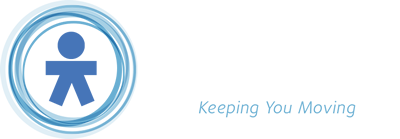Are Your Bones Old Before Their Time?
At our Newmarket physio clinic, we like to keep up to date with any articles or research that can help us become even better at keeping you moving – that’s what we’re all about! So we were particularly interested in some research conducted in Sydney that revealed 33% of Australians in the 65+ bracket are doing no exercise at all, with a lot more than that not doing anywhere enough to improve their strength, coordination and balance.
Meanwhile, the Australian Journal of Science and Medicine in Sport published a paper that stated the country’s older population were keen on aerobic activities like walking, which has undoubted cardiovascular benefits but not so keen on other exercises which can protect against falls or the loss of bone mass. Before we start deriding our Aussie cousins, we have to say that their experience is replicated on this side of the Tasman. Our ageing bones are just as bad as theirs.
Here in New Zealand, osteoporosis is one of the most common metabolic bone diseases in people over 65. It is typically seen in elderly women, but we have noticed it in both genders, as well as all races, and age groups. Osteoporosis is characterised by low bone mass and the gradual deterioration of bone tissue, and this leads to increased bone fragility over time. Sadly, the disease isn’t usually apparent until a fracture occurs and this is usually caused by a fall.
Another term associated with osteoporosis is osteopenia. This refers to a lower than normal bone mineral density (BMD) but not yet low enough to be classified as osteoporosis. BMD is a measurement of the level of minerals in the bones, which shows how dense and strong they are at any given stage.
These conditions can be held at bay to a great degree, and many of our more mature clients are being proactive in this regard by seeking our help. At our physiotherapy clinic in central Auckland, we can reduce your risk of osteoporosis by improving your strength, flexibility, posture, and balance. We see regular weight-bearing exercises as being essential in retaining healthy bone mass and this is something we encourage in everyone, including children and adolescents. Exercise also improves agility and balance, thereby reducing the risk of falls as people age. Meanwhile, spinal bone mineral density (BMD) is directly linked to the strength of the back extensors; this is why maintaining and strengthening the back extensors is something we concentrate on as well.
Staying active as you age, and doing the right sort of exercise, are incredibly important. So, if you’re the mature type and want to enjoy ongoing balance and agility, contact us and take a proactive approach to keeping your bones healthy.
Appointments
Free carparks
available onsite
Monday - Friday:
7am-6pm
95 Mountain
Road, Epsom
